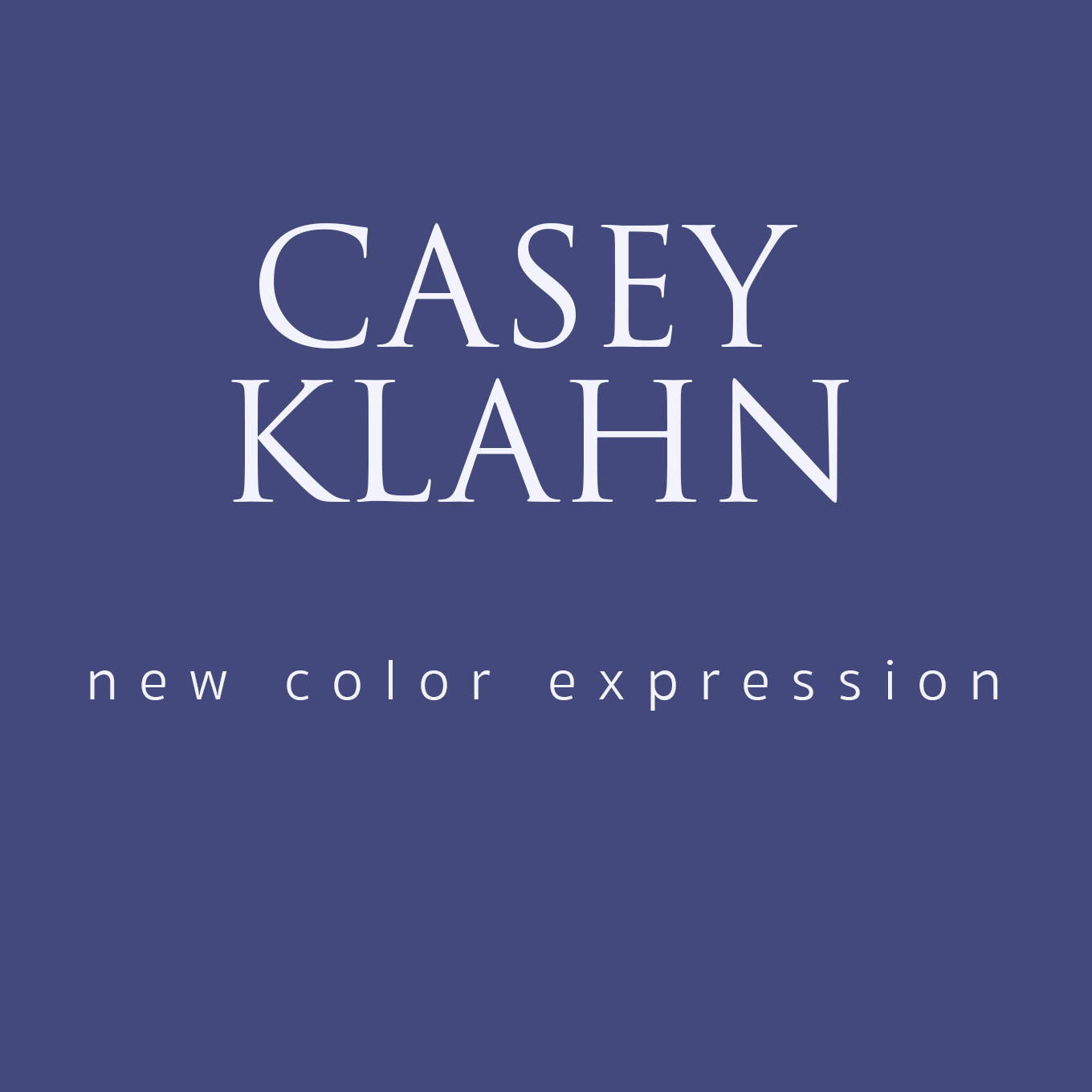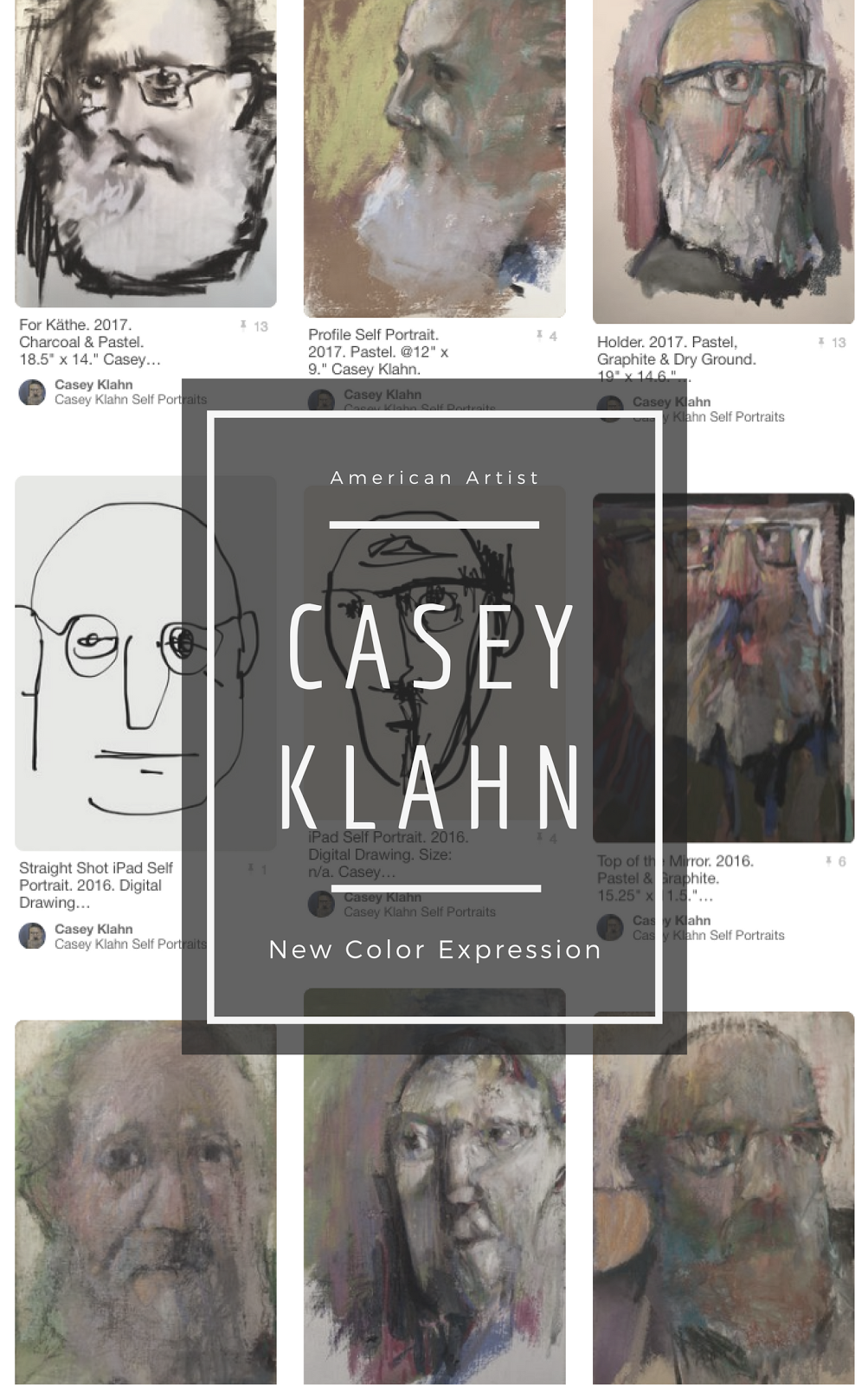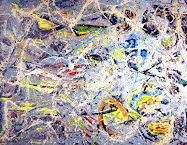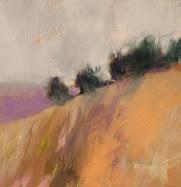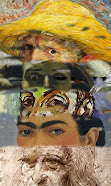31 October, 2008
Generosity
Early in my career as an artist I was advised to never give away my art. The idea is to establish your value, and often people who get something for nothing hold that something to its ticket price.
Maybe one model for the uncertain economic times we are living in will be for the (established) artist to now, sometimes, gift his art. The goodwill can't hurt, and there is that old word: exposure. My own path has been to donate at least one work per year to organizations.
An artist can also give time, expertise and labor.
One of the great examples of generosity in art history can be found in the life of Vincent van Gogh. He loved humankind, and really created his inimitable body of works for our enjoyment.
Here are musicians Chet Atkins and Don McLain performing Vincent, which is about VVG's unselfish love. Find the words to the song here.
The youth here may not remember this song, but those of us in the 50 plus category will now go for a tissue...
“I feel that there is nothing more truly artistic than to love people,” Vincent van Gogh.
29 October, 2008
Excellence
There has been a strong case put forth against excellence in art. The whole Postmodern Art movement declares that "dominant paradigms" need upturning, like beauty and skill.
My contemporary hero, Wolf Kahn, wrote that he regrets his latter-day skills in technique, because formerly, without his expertise as an oil painter, he was freer to "overwork" his images. Our current subject, Henri Matisse, worked years to undo his formal art training in order to create his Modern Art statement of pure, "over-wrought" and sensational color.
Because of Wolf Kahn's influence, I frequently take a pastel work and bring it well past any coherent finished point. I literally ruin the artwork, over-filling the tooth of the paper and muddying the colors. In the process, many wonderful discoveries occur! New color combinations and compositions come about. New possibilities with the medium are revealed.
In the dock for excellence, one can argue that the very definition of the word "artist" includes the idea of skill. And as my prime exhibit, I refer you to the high quality of current art. Evidence of Postmodernism's faults is everywhere present.
How to reconcile my personal beliefs about rudimentary values in art versus excellent technique? Maybe there doesn't need to be a reconciliation when one considers that there is a continuity to the artist's progress from his early to his late works. The unity of an artist's corpus is undeniable in the fact that both his early works and his later works are created by the same hand.
I feel that many more paintings await me with greater powers as a pastelist. I'll be thinking about the finer use of my medium as my studio life progresses this year.
27 October, 2008
Decisiveness - Drawing the Line
In the post, Characteristics & Goals, we began a path of exploring some traits that it would behoove the fine artist to acquire. See the traits posts here.
The artist that I aspire to be has:
Commitment
Courage
Creative Integrity
Decisiveness
Excellence
Generosity
Knowledge
Self Understanding
Decisiveness
Matisse said something to the order of, "Make your lines decisive!" Unfortunately I have lost the attribution to this quote, but our great Modernist is known for his superb rendering of the simple, graceful and purposeful line.
By the way, I have quit using Matisse images because I was reminded that he has an active estate, and is also not past the 70 year rule vis-a-vis fair use. Try this site for an pictorial homage to the man (apparently with rights?)
The trait of decisiveness comes with competency. If you believe in yourself and your materials, you can be bold with marks and with colors. Draw much. Make a promise to yourself to draw at least 1,000 drawings this year.
Be Keen
Mental agility helps. Test yours here.
Now that you (may) hate me for that, let's get back to mental agility. In order to be resolute in one's art, I suggest having a keen mind.
Our Henri Matisse was known for his sharp wit. He generally dominated in groups, sometimes taking over the direction of his class of art students from slow teachers. He was a class clown and a general agitator. A rather unusual story is told of his having defeated a master hypnotist when he was a youth - Henri being the only one to resist the powerful stage man.
Art itself has been held up as a pursuit beneficial to honing the mind. Other general fitness activities, social interaction, active learning, and one of my required pursuits, reading, can keep the gray matter healthy.
Is your I.Q. hardwired? Is there any wiggle room for your brain to grow?
Make these smart choices to become a smarter artist:
- Hang out with people smarter than yourself.
- Blog.
- Study language.
- Become interested in new things.
- Read an artist's biography.
22 October, 2008
Henri Matisse & the Artist's Integrity
 Deer "Cast" Drawing
Deer "Cast" Drawing14" x 12"
Charcoal, Conte and Compressed Charcoal
Casey Klahn
"A colorist makes his presence known even in a single charcoal drawing," Henri Matisse.
Integrity can be measured by the way others speak about you. That may seem harsh, but legacy is a hard judge and strict. Will you ever be mistreated by others' words? Of course you will. But, with time and distance, if you are remembered at all, people might say nice things about you. Your integrity will be the reason for your fine reputation.
In the case of Henri Matisse, his artistic integrity was evidenced by his groundbreaking work as a founder of Modern Art. It cost him dearly at a psychological level, but he pursued color as a subject (a trademark of Fauvism) and gave the world a legacy of exquisite joy in art. He lost two marriages (one legal and one common law) partly because of his single-minded adherence to his art and his art direction, and he suffered sleep disorders much of his life due to his "not painting like the others".
Matisse was a self-integrated artist; one who painted according to his own authentic vision.
What is the path to artistic integrity? A young Henri Matisse was searching for answers, and just beginning to follow his independent path. In the 1890's, he came under the influence of the Impressionists, who were not universally popular. No lesser light than Camille Pissaro himself said to Matisse, "...you are gifted. Work, and don't listen to anything anyone tells you." (circa 1897)
In memoirs, his friend Maurice Boudot-Lamotte testified that, "Matisse respected nobody and nothing." Matisse's artistic direction was purely his own; unique and self-directed. A legacy worth more than gold, I'd say.
Artistic Integrity Red Meat:
Integrity (Stanford definition)
Artistic Integrity:
"Holding to artistic values; incorruptible; exhibiting wholeness; self-integration." Unknown attribution.
20 October, 2008
Artistic Integrity
It is a pleasant surprise to see that the dictionary definition of the word integrity includes "artistic integrity" as a prime category of the virtue.
Merriam-Webster has it as follows:
Integrity 1 : firm adherence to a code of especially moral or artistic values : Incorruptibility.
While the topic of artistic courage leaves much room for study, here we have a term that artists may "own": artistic integrity. What is it, and how does one get it?
Here are some general quotes on integrity to chew on:
Albert Camus, "Integrity has no need of rules." 1.
Ralph Waldo Emerson, "A little integrity is better than any career." 2.
Eckhart von Hochheim, "In silence man can most readily preserve his integrity." 3.
Oliver Goldsmith, "Both wit and understanding are trifles without integrity. The ignorant peasant without fault is greater than the philosopher with many. What is genius or courage without a heart?" 4.
- More to come in the next post.
10 October, 2008
Working Integrity
 Ice Climbing Trip on the North Side of Mt. Hood, Oregon. Mounts Adams and St. Helens in the Distance.
Ice Climbing Trip on the North Side of Mt. Hood, Oregon. Mounts Adams and St. Helens in the Distance.Photo Credit: Tom Heins
Look for my next post on Creative Integrity soon. Right now, I'm on my annual vacation.
02 October, 2008
Artistic Courage - Get It!

8" x 7"
Graphite
Casey Klahn
Artist's traits are worth exploring if one wants to grow as an artist, or to understand what makes the artist tick. My list of growth traits for the next biennium is: Commitment, Courage, Creative Integrity, Decisiveness, Excellence, Generosity, Knowledge, and Self Understanding.
Explore my previous posts on the traits here.
Courage is a two-bit word, and my exploration of artistic courage has been a head-scratcher, to say the least. What is it, and how do you find some for yourself?
What is Artistic Courage?
"All art requires courage." Anne Tucker
Some disparage the hero as a social or literary myth, but don't tell that to me. I have walked among heroes of the martial kind, and have seen first-hand the results of their self-sacrifice. For me, heroism is not abstract myth, it's oral history told to me first hand.
Somewhere down the scale of societal value lies the sports hero, and I have not only met and listened to the tales of mountaineering legends, but I have actually gotten to climb with a few. Their acts are real, and not literary vehicles.
Artist Samuel Morse, Bemedalled
The art hero is a fairly rare beast compared to the ones mentioned above. I like JafaBrit's comment on artistic courage:
"Artist courage for me is putting yourself out there even knowing that the world doesn't exactly love what you do. Risking being authentic and true to self knowing that your work has a fat chance of selling, but you try anyway and face the rejection or indifference." JafaBritSee all of the comments on my courage post here.
Simon Schama's Power of Art series is an excellent study of the artist as hero. Schama and the heroic artist are not without their detractors. I credit Schama with his clarity of focus in our age, where convoluted and messy thinking discounts the personal courage obvious in the artists spotlighted in this series.
Matisse faced open derision from the public and art critics alike when he exhibited at the 1905 Salon d'Automne in Paris. Rude viewers would scratch at his canvases, or puddle the wet oil paint with their fingers. He was on the cusp of his revolutionary changes, and he would eventually remake art in the face of overt institutional prejudice.
Italian Olive Grove
22" x 28"
Pastel on Diane Townsend Paper
Casey Klahn
Get Some Courage
"Courage is doing what you're afraid to do. There can be no courage unless you're scared." Eddie Rickenbacker
Using examples of courage has been a time-honored way to teach both respect for the trait, and perhaps put acolytes on the pathway to gaining courage. Being around courageous people, and studying about their lives and actions can help define and arouse courage in yourself.
Wolf Kahn studied under Hans Hoffman; Albrecht Durer was influenced by a constellation of important artists, including Bellini, Raphael and Leonardo. I have gotten advice from artists whom I respect, and have used them as mentors when I need direction.
In art, the study of artists who exhibit courage - artistic courage - is of great value to the one who seeks this trait. Even though the Internet is bare of examples, I find plenty of text about artistic heroism in my book reading.
In the Matisse biographies, Hilary Spurling relates the epic that involves the boy who must overcome the powerful social and bureaucratic inertia of 19th. century France to find his (singular and timeless ) artistic voice. Spurling describes his courage in bucking familial mores to go to academy in Paris, and then the impoverishment of life on meager coin, and the endurance necessary to advance in the narrow and competitive world of the atelier. And then, to buck that overbearing system and create his own statement and help found the era of Modern Art.
"Courage is rightly esteemed the first of human qualities... because it is the quality which guarantees all others." Winston Churchill
"Courage is not simply one of the virtues, but the form of every virtue at the testing point." C.S. Lewis
The quotes by prominent Britishers C.S. Lewis and Winston Churchill seem to "bookend" courage around the other great traits. "Courage...guarantees all others," and "Courage is...every virtue at the testing point." If you will take these truths to heart, the bedrock of your courage will be established.
Photo credit: Lorie Klahn
How to Build Courage Through Personality Traits and States of Mind.See my source here. This information is from Sean Hannah and colleagues (Hannah, Sweeney & Lester, 2007) from the United States Military Academy.
Traits:
Have Openness to Experience & Creativity.
"Creativity takes courage." Henri Matisse
Options are good, and may lead to greater creativity. The counter to this is fencing in the artist's opportunities. Don't let him draw abstraction; keep her painting indoors only; limit their voices to one world view only. These limits are sure to snuff-out creative courage and generate fear.
Be Conscientious.
Engage in things that not only benefit yourself, but others as well. The good news for the older artist is that this trait has been shown to increase with age. Family, social, work, and marriage commitments can all be beneficial to your character, and that goes towards standing firm when the challenges hit.
Have Self Control and Emotional Stability.
While these traits were wholesale lacking in our favorite courageous artist, Vincent van Gogh, they do score big points in leading most of the rest of us towards improved backbone when courage is required. Clue: if you think that you have little or no control over life outcomes, and are prone to use the old saw, "they won't let me..," then your locus of control needs to be reviewed. Practice and review your "I can" inventory to improve your internal locus of control.
Be constant in your emotions.
Immediate State of Mind.
Have Self Confidence.
"Confidence, like art, never comes from having all the answers; it comes from being open to all the questions." Earl Gray Stevens
If you believe you can do it, then you will be more courageous when facing the dreaded fear of the blank page, or the overwhelming fear of the audience.
Exhibit Technical Prowess.
Do you have the tools, and do you know how to use them? Practical power can be found in buffing your technique. Want artistic courage? Draw 1,000 pictures this year, minimum.
Take Hope.
"Tell a person they are brave, and you help them become so." Thomas Carlyle
Have confidence that the task is doable. It helps to succeed a few times, then keep those successes close at heart. This is one of the benefits of that old time device: the art medal. Post those victories; frame your certificates and awards.
Be Resilient.
Keep a positive attitude and a sense of humor! Decide to bounce back; get back in the saddle. Maintain your level of interest in things; read or have a hobby. Try a new medium. Study art history.
Got Core Traits?
Independence, selfless behavior, personal integrity and honor are fine core traits. Become influenced by things greater than yourself. You do recognize forces greater than yourself, don't you? Civilization, societal beliefs, religion, and philosophy are resources to look up to.
Seek out and engage courageous people. We've covered this ground, but remember to hang with successful artists, and think about what kinds of traits they exhibit.
Finally, let me leave you with this thought:
"Leadership is not about genius. It’s about courage." Brian Clark









